In the circuit given here, the points A,B and C are 70 V, zero, 10 V respectively . Then,
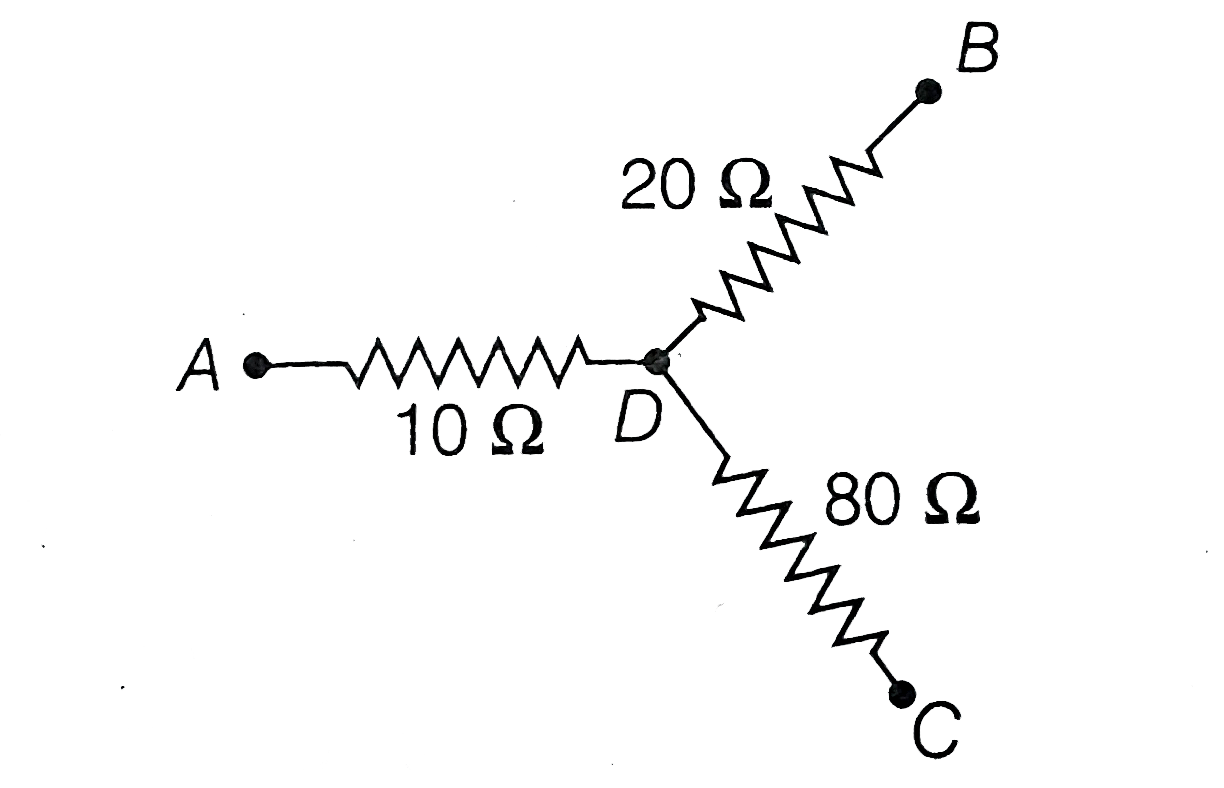
the point d will be at a potential of 60 V
the point D will be at a potential of 20 V
currents in the paths AD, DB and DC are in the ratio of 1:2:3
currents in the paths AD, DB and DC are in the ratio of 3:2:1
The correct Answer is:D
Applying Kirchhoff's law at point D, we get
i1=i2+i3
VA−VD10=VD−VB20+VD−VC30
⇒ 70−VD=VD2+VD−103⇒VD=40V
i1=70−4010=3A⇒i2=40−020=2A
and i3=40−1030=1A
So, the ratio will be 3 : 2 : 1.
Topper's Solved these Questions
- CURRENT ELECTRICITYBook:MHTCET PREVIOUS YEAR PAPERS AND PRACTICE PAPERSChapter:CURRENT ELECTRICITYExercise:EXERCISE 2
Explore 26 Videos
- CURRENT ELECTRICITYBook:MHTCET PREVIOUS YEAR PAPERS AND PRACTICE PAPERSChapter:CURRENT ELECTRICITYExercise:MHT CET CORNER
Explore 32 Videos
- CURRENT ELECTRICITYBook:MHTCET PREVIOUS YEAR PAPERS AND PRACTICE PAPERSChapter:CURRENT ELECTRICITYExercise:MHT CET CORNER
Explore 32 Videos
- COMMUNICATION SYSTEMBook:MHTCET PREVIOUS YEAR PAPERS AND PRACTICE PAPERSChapter:COMMUNICATION SYSTEMExercise:MHC CET Corner
Explore 6 Videos
- ELASTICITY Book:MHTCET PREVIOUS YEAR PAPERS AND PRACTICE PAPERSChapter:ELASTICITY Exercise:MHT CET CORNER
Explore 16 Videos
Similar Questions
Shown a part of an electric circuit, The potentials at the points a,b,and c are 30V,12V,and 2V respectively.Find the currents through the three resistors.

View SolutionThe arrangement shows a part of complete circuit. The potentials at point A and B are V1 and V2 respectively . Find the potential at point P.

Strategy : The two capacitors C1 and C2 are connected in series . Therefore the charge on both of the capacitors is same . Let the potential at P is V .
View Solution
Knowledge Check
For the network shown in figure, points A, B and C are at potentials of 70 V, zero and 10 V respectively
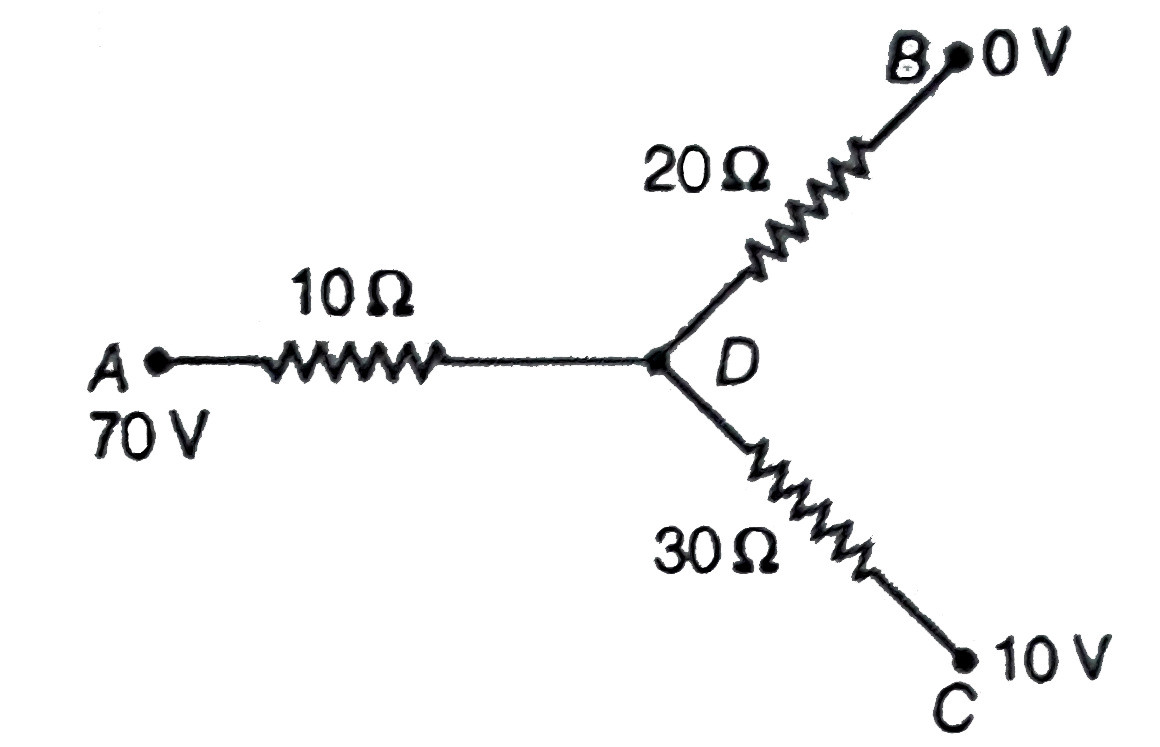 Apoint D is at a potential of 40 VBthe currents in the sections AD, DB and DC are in the ratio 4:3:2Cthe current in the sections AD, DB and DC are in the ratio 1:2:3Dthe network draws a total power of 100 W
Apoint D is at a potential of 40 VBthe currents in the sections AD, DB and DC are in the ratio 4:3:2Cthe current in the sections AD, DB and DC are in the ratio 1:2:3Dthe network draws a total power of 100 WIn the network shown in fig. , points A, B, and C are at potentials of 70 V, 0, and 10V, respectively.
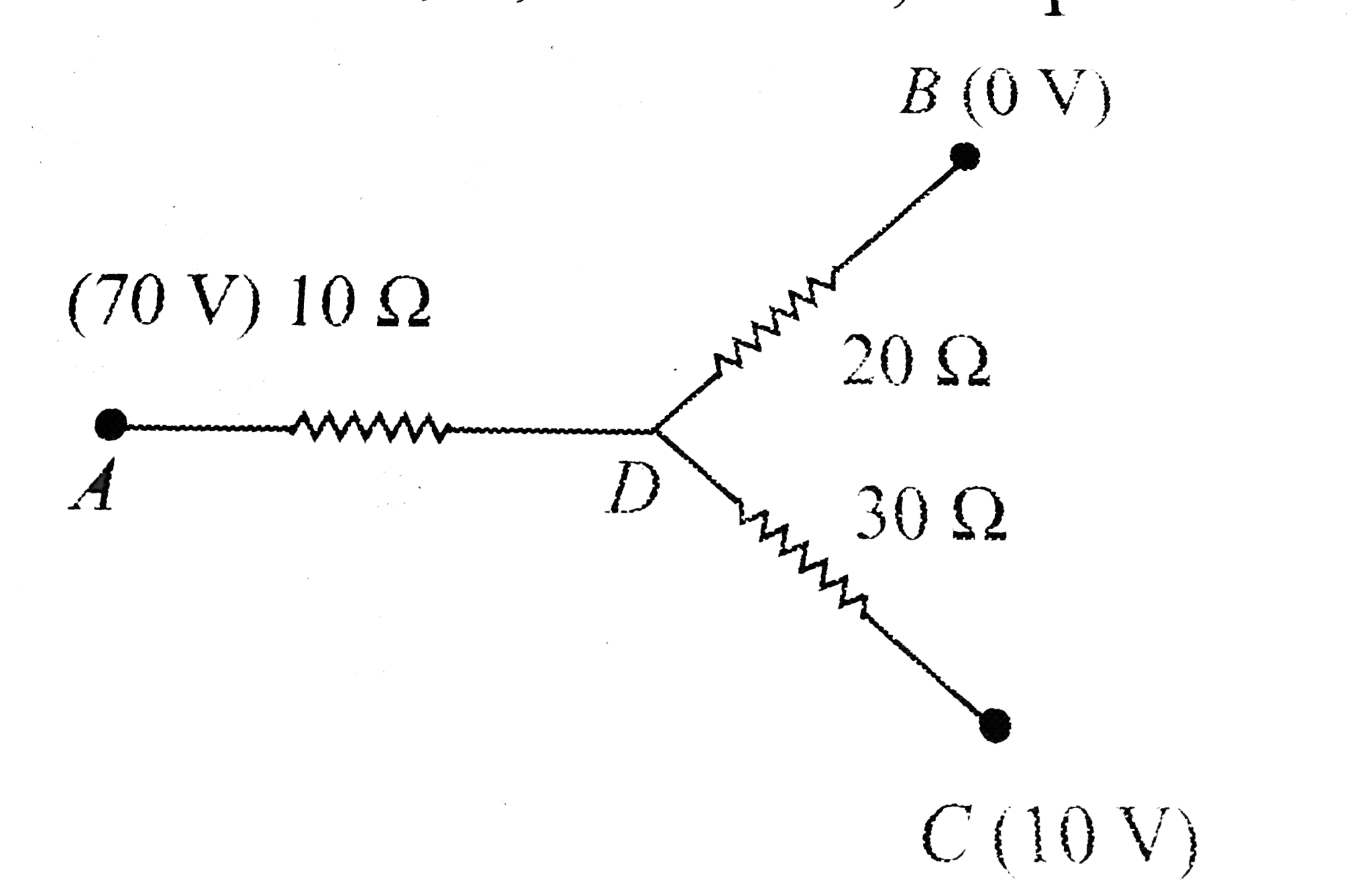 APoint D is at a potential of 40 V.BThe currents in the sections AD, DB, DC are in the ratio 3 : 2 : 1CThe currents in the section AD, DB, DC are in the ratio 1 : 2 : 3.DThe network draws a total power of 200 W.
APoint D is at a potential of 40 V.BThe currents in the sections AD, DB, DC are in the ratio 3 : 2 : 1CThe currents in the section AD, DB, DC are in the ratio 1 : 2 : 3.DThe network draws a total power of 200 W.In an L-C-R circuit the AC voltage across R, L and C comes out as 10 V , 10 V and 20 V respectively . The voltage across the enter combination will be
A30 VB10√3VC20 VD10√2A
A circuit has a section ABC if the potential at point A,BandC are V1,V2andV3 respectively , calculate the potential at point O
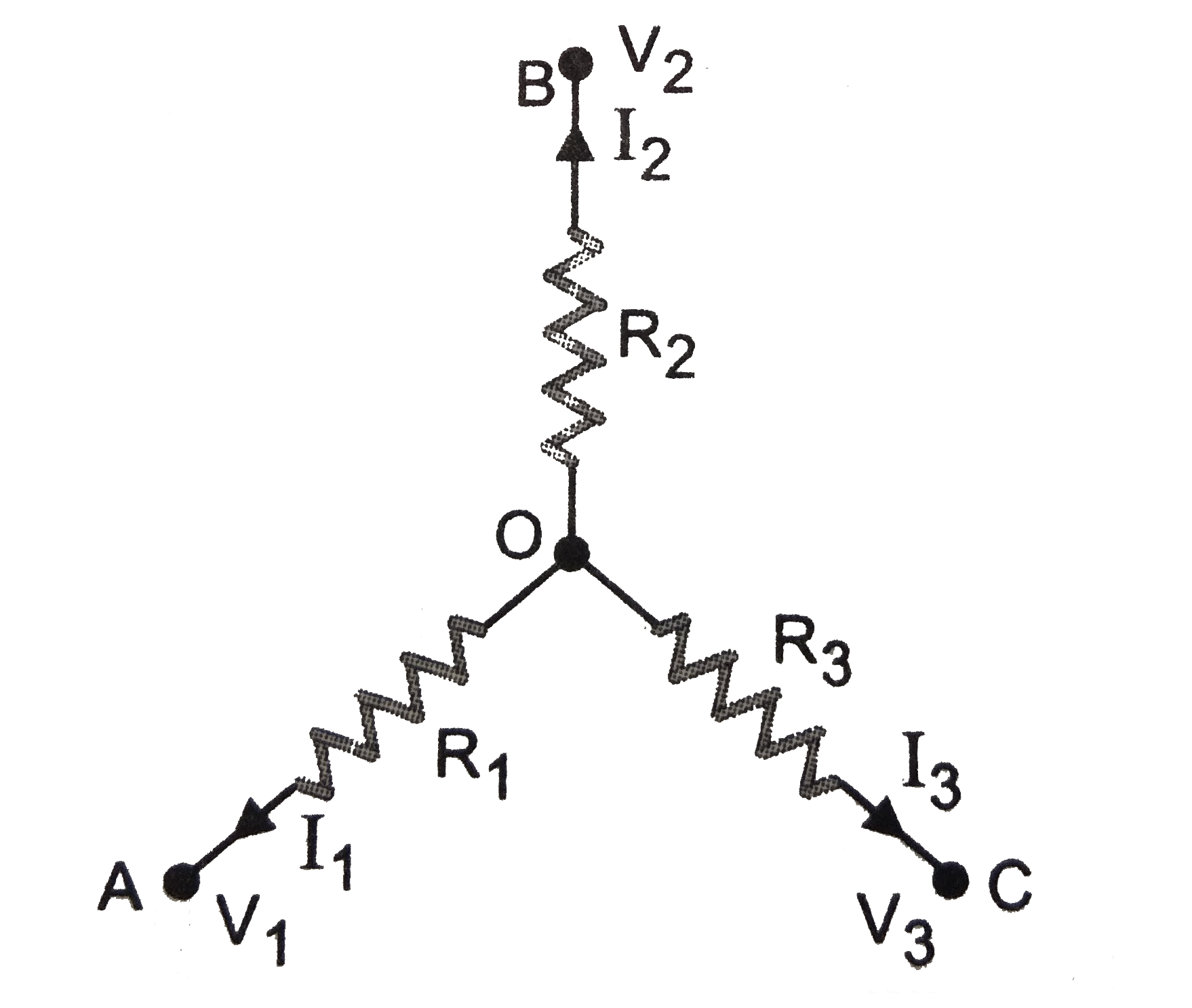
View SolutionIn an LCR series circuit the voltages across R,L and C at resonance are 40Vand60V respectively the applied voltage is .
View SolutionIn an LCR series ac circuit the voltage across L,C and R are V1,V2 and V3 respectively The voltage of the source is .
View Solution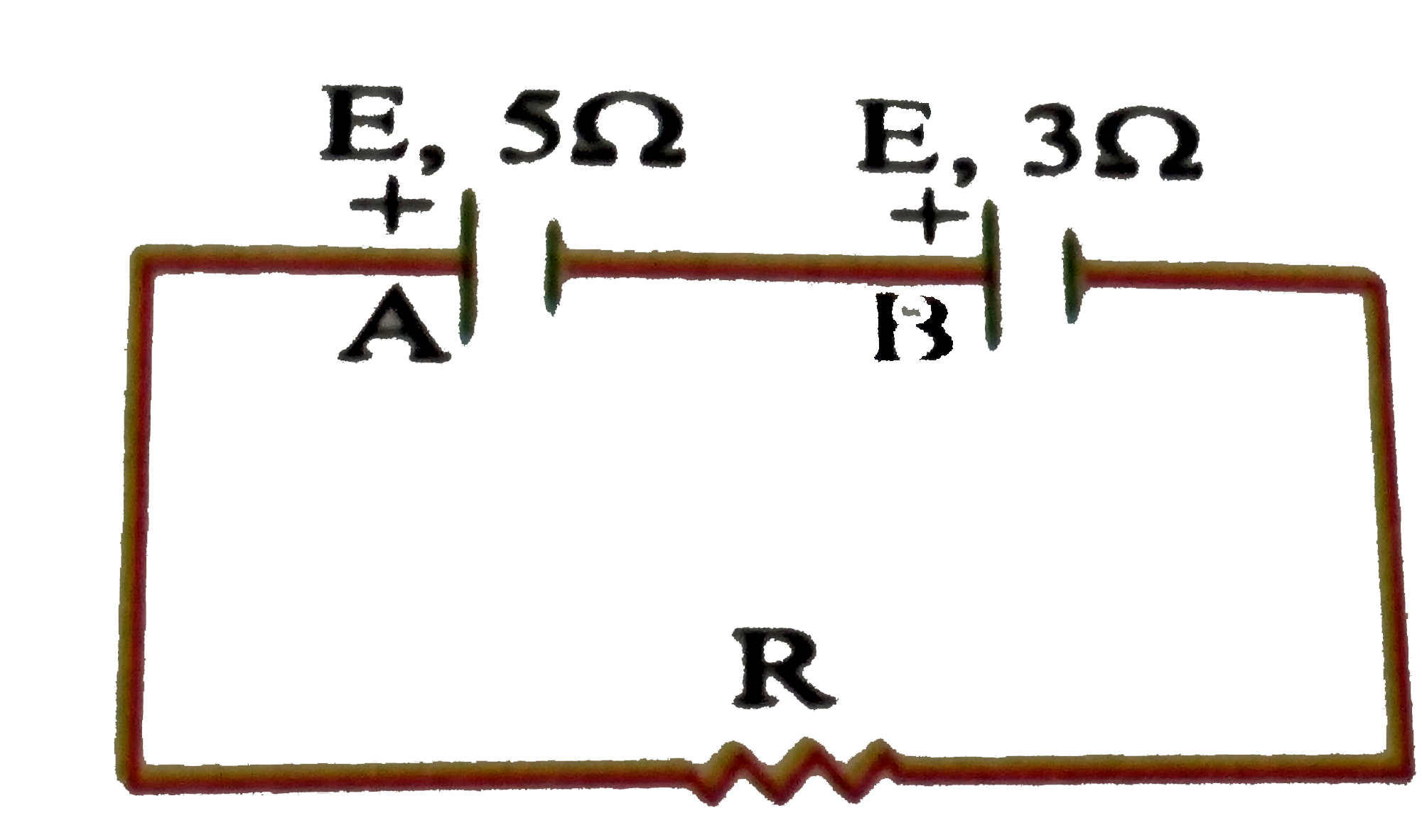
In the circuit shown here, cells A and B have emf 10 V each and the internal resistance is 5Ω for A and 3Ω for B. For what value of R will the potential difference across thhe cell A will be zero?
View SolutionIn the given circuit the R.M.S values of voltages across the capacitor C, inductor L and resistor R1 are 12V, 10V and 5 V respectively. Then the peak voltage across R2 is
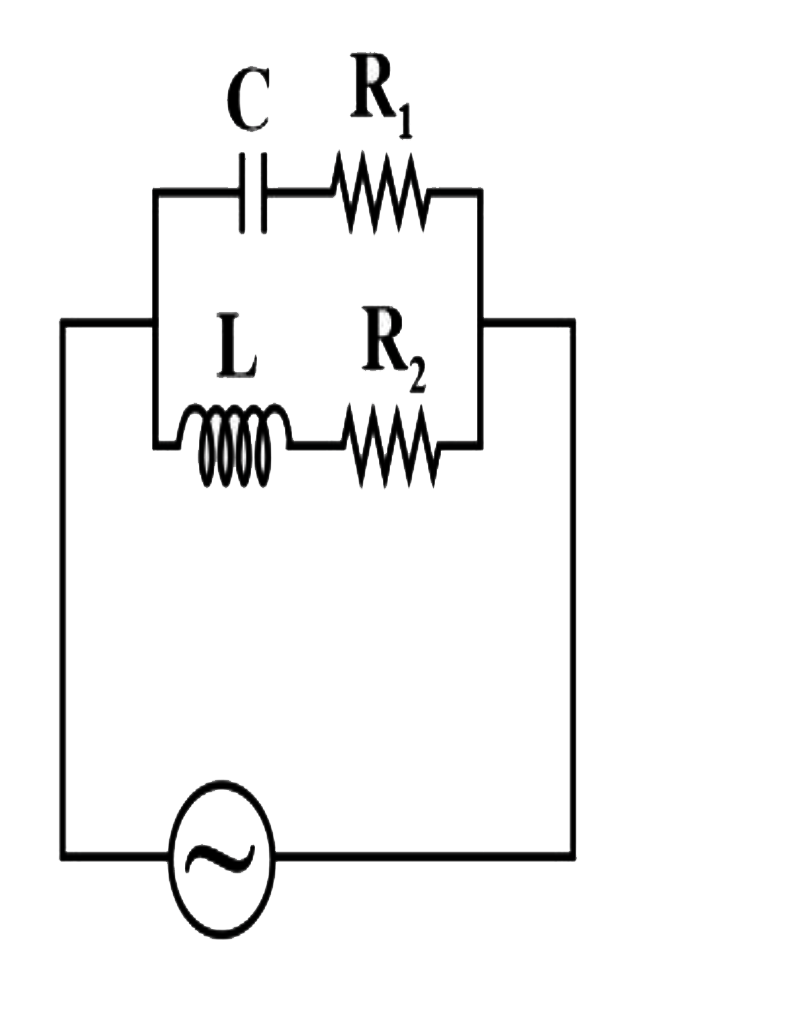
View Solution
